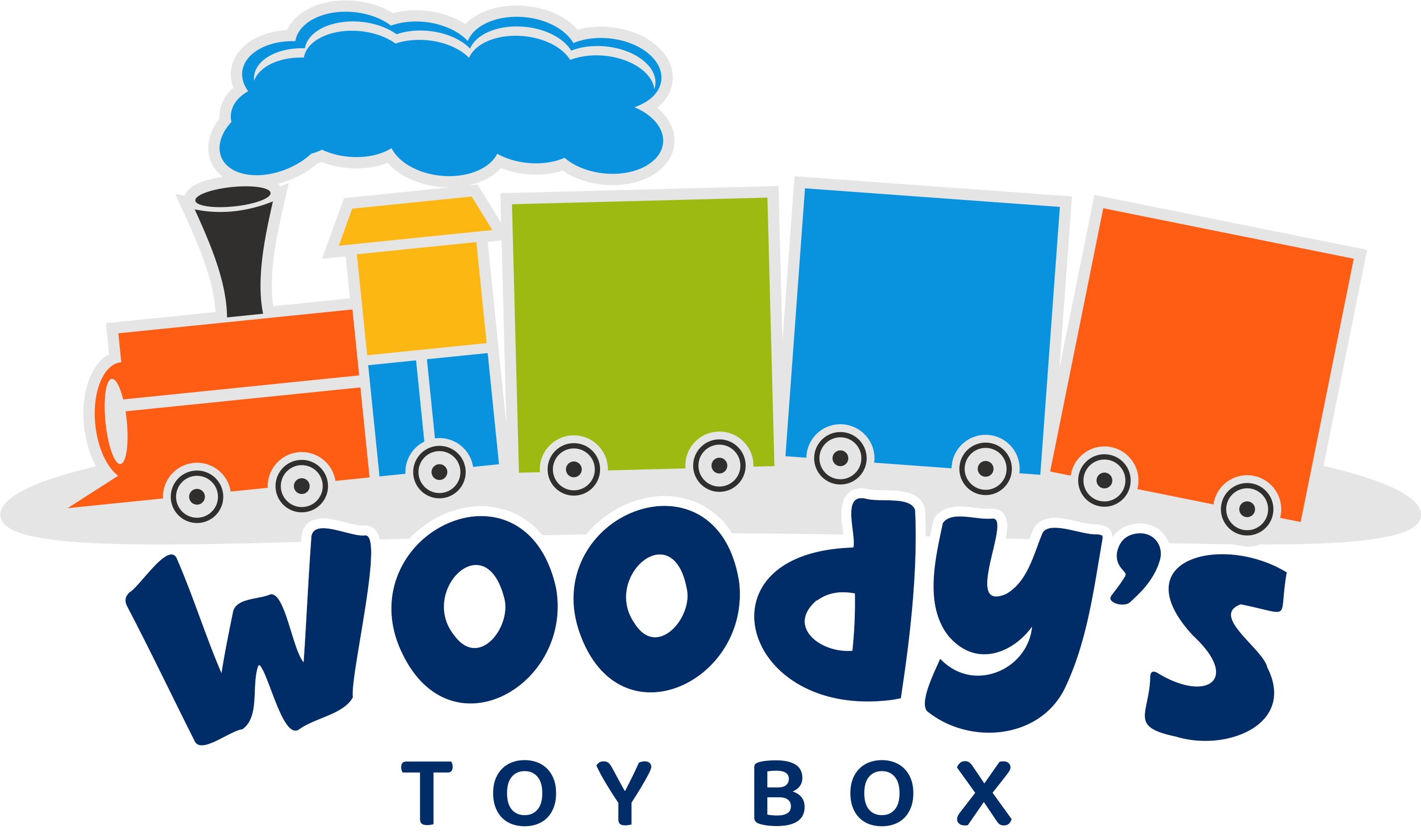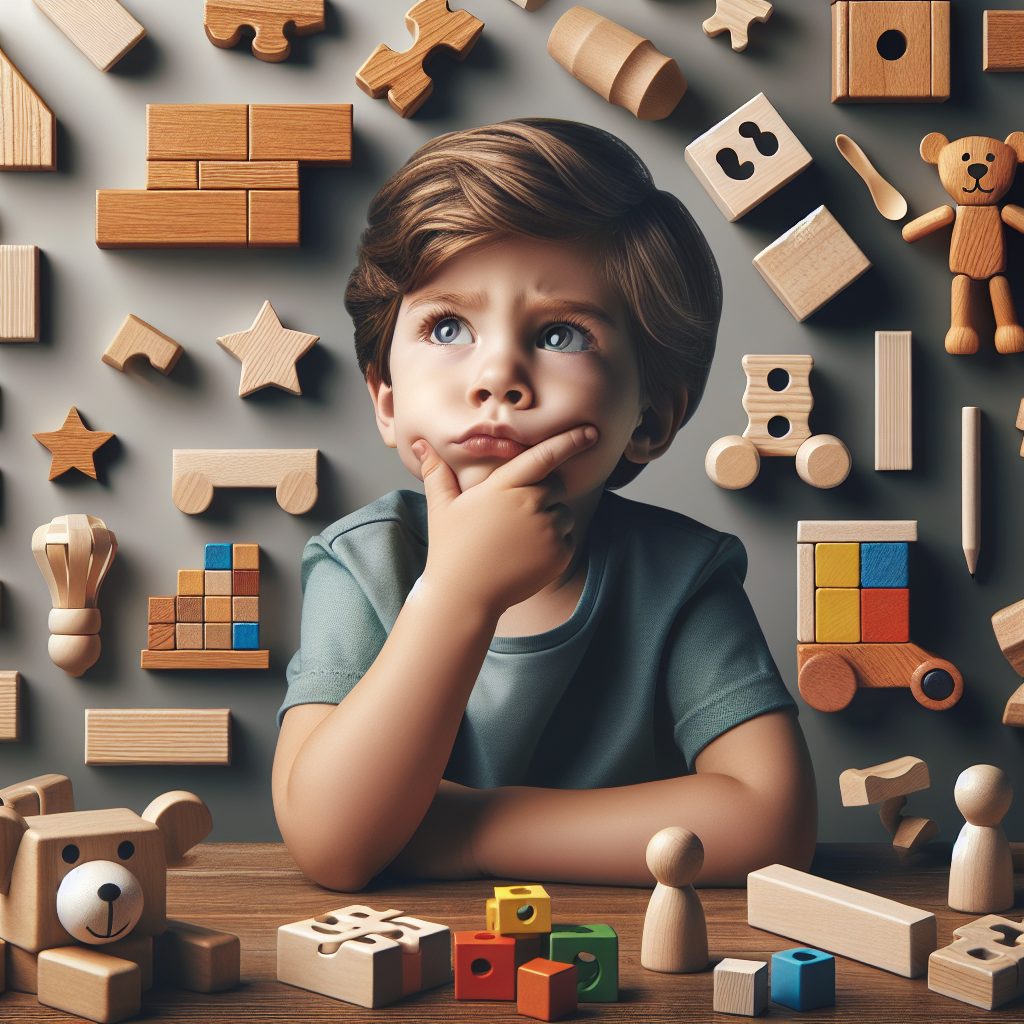Choosing the right wooden toys for preschoolers can play a crucial role in their development and overall growth. Wooden toys have been used for centuries and are known for their durability and natural materials. These toys offer a plethora of benefits that can engage a child’s imagination, creativity, and cognitive skills. Moreover, wooden toys have a timeless appeal and can withstand the test of time, making them a great investment for parents and educators alike. By providing preschoolers with the right wooden toys, we can foster their physical, mental, and emotional development in a fun and engaging way.
One of the unique features of wooden toys is their ability to stimulate a child’s senses. The natural texture, weight, and scent of wooden toys provide a sensory experience that is different from plastic or metal toys. This can help preschoolers develop their fine motor skills, hand-eye coordination, and sensory perception. Wooden toys also promote open-ended play, allowing children to use them in a variety of ways and encouraging creativity and problem-solving skills. Moreover, these toys often have a timeless design that can appeal to both children and adults.
Moving forward, let’s explore the key takeaways when choosing wooden toys for preschoolers. We will discuss the importance of age appropriateness, safety considerations, and the benefits of choosing eco-friendly options. By understanding these key factors, parents and educators can make informed decisions when selecting the right wooden toys for preschoolers, ensuring a positive and enriching play experience.
Key Takeaways
1. Age-appropriateness is essential when selecting wooden toys for preschoolers, as different toys cater to specific developmental stages and skills. Assess the toy’s complexity, safety features, and potential to promote creativity and cognitive development.
2. Look for wooden toys that encourage open-ended play, allowing children to use their imagination and creativity. These toys can inspire storytelling, role-playing, and problem-solving, fostering cognitive, emotional, and social development.
3. Consider durability when choosing wooden toys for preschoolers. Look for toys made from high-quality materials that can withstand rough play and last for generations, ensuring long-term engagement and enjoyment.
4. Prioritize safety by examining the toy’s design, materials, and construction. Avoid toys with small parts that could pose a choking hazard, sharp edges or points, and toxic finishes or paints. Opt for toys that are ASTM certified to meet safety standards.
5. Wooden toys that promote fine motor skills, hand-eye coordination, and sensory exploration are valuable for preschoolers’ development. Seek out toys like puzzles, building blocks, threading games, and sorting toys that can enhance these crucial skills while providing engaging play experiences.
What are the Factors to Consider When Choosing the Right Wooden Toys for Preschoolers?
Safety and Durability
One of the essential factors to consider when choosing the right wooden toys for preschoolers is safety. Ensure that the toys do not have any small parts that can be a choking hazard. Additionally, make sure the toys are made from non-toxic materials. Durability is another crucial aspect to consider, as preschoolers can be rough with their toys. Look for toys that are sturdy and can withstand the daily play of active preschoolers.
Age-Appropriate
When selecting wooden toys for preschoolers, it is crucial to consider their age appropriateness. Different toys are designed for specific age groups, taking into account the developmental milestones of children. Make sure to choose toys that align with your child’s age and abilities. This ensures that the toys are not too challenging or too simplistic, providing an optimal learning and play experience.
Educational Value
Wooden toys can be excellent tools for early childhood education. Look for toys that offer educational value and promote cognitive and physical development. Toys that encourage problem-solving, fine motor skills, creativity, and imagination are ideal choices for preschoolers. Building blocks, puzzles, shape sorters, and musical instruments are examples of wooden toys that can contribute to a child’s learning and growth.
Multifunctionality
Choosing wooden toys that offer multifunctionality can provide extended play possibilities for preschoolers. Look for toys that can be used in multiple ways or have different play modes. For example, a wooden kitchen set with detachable parts can be used for cooking, pretend play, and learning about shapes and colors. By opting for multifunctional toys, you can maximize the play value and engage your child’s creativity.
Sustainability and Eco-Friendliness
Considering sustainability and eco-friendliness when choosing wooden toys is becoming increasingly important. Look for toys that are made from sustainably sourced wood or use recycled materials. By opting for eco-friendly toys, you not only prioritize the well-being of your child but also contribute to a better environment for future generations.
What should you keep in mind when shopping for wooden toys?
- Consider the safety features and durability of the toys.
- Ensure that the toys are age-appropriate for your preschooler.
- Look for toys that offer educational value and promote learning.
- Consider the multifunctionality of the toys for extended play possibilities.
- Prioritize sustainability and eco-friendliness when selecting wooden toys.
Choosing the Right Wooden Toys for Preschoolers: FAQ
1. How do I choose the right wooden toys for my preschooler?
When choosing wooden toys for preschoolers, consider their age, developmental needs, safety features, and educational value. Look for toys with non-toxic paints, smooth edges, and durable construction.
2. Are wooden toys better than plastic toys for preschoolers?
Wooden toys are often preferred over plastic toys for preschoolers due to their durability, sustainability, and natural appeal. They encourage creativity, imagination, and problem-solving skills.
3. What types of wooden toys are suitable for preschoolers?
Several wooden toys are suitable for preschoolers, including building blocks, puzzles, shape sorters, stacking toys, musical instruments, pretend play sets, and art supplies like easels and crayons.
4. How can I ensure the safety of wooden toys for preschoolers?
To ensure safety, always check for small parts that may pose a choking hazard, ensure the toys are free from toxic materials, and inspect for any sharp edges or splinters. Additionally, follow the age recommendations provided by the manufacturer.
5. Can wooden toys help in the development of preschoolers?
Yes, wooden toys can aid in the development of preschoolers by promoting fine motor skills, hand-eye coordination, problem-solving abilities, creativity, imagination, and social interaction.
6. Are there any specific considerations for children with allergies?
If your child has allergies, opt for wooden toys made from hypoallergenic woods like beech, maple, or birch, and ensure they are free from any allergenic finishes or paints.
7. How do I clean and maintain wooden toys?
To clean wooden toys, wipe them with a mild soap and water solution, ensuring they are thoroughly dry before storing. Avoid immersing or soaking wooden toys in water. Regularly inspect the toys for any signs of wear and tear.
8. Are there any disadvantages of wooden toys?
One disadvantage of wooden toys is that they may be more expensive than plastic toys. Additionally, some wooden toys may not have the same electronic features or lights as their plastic counterparts.
9. Where can I buy high-quality wooden toys for preschoolers?
You can find high-quality wooden toys for preschoolers at specialty toy stores, online marketplaces, and educational retailers. Read customer reviews and ensure the toys meet safety standards before making a purchase.
10. Can wooden toys be passed down to younger siblings or future generations?
Yes, wooden toys are often durable and long-lasting, making them ideal for passing down to younger siblings or future generations. Their timeless appeal and sturdy construction allow for prolonged use and enjoyment.
Final Thoughts on Choosing the Right Wooden Toys for Preschoolers
Choosing the right wooden toys for preschoolers is a thoughtful and beneficial decision. By selecting toys that align with your child’s age, interests, and developmental needs, you can provide them with engaging and educational playtime experiences. Wooden toys offer numerous advantages over plastic alternatives, such as enhanced durability, sustainability, and the stimulation of imagination and creativity.
Moreover, the wide range of wooden toys available, from puzzles and building blocks to pretend play sets and musical instruments, ensures there’s something suitable for every preschooler. By prioritizing safety, maintenance, and considering specific requirements like allergies, you can create a safe and enriching play environment for your child. Investing in high-quality wooden toys is not only an investment in their development but also an opportunity to create cherished heirlooms to be enjoyed by future generations.

